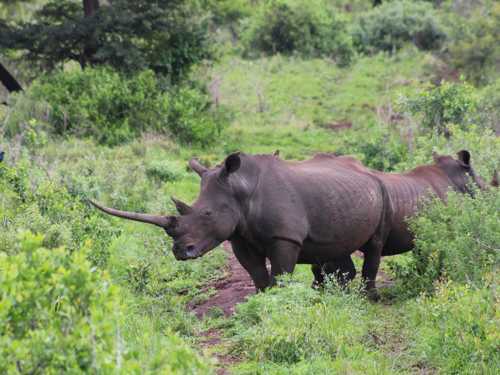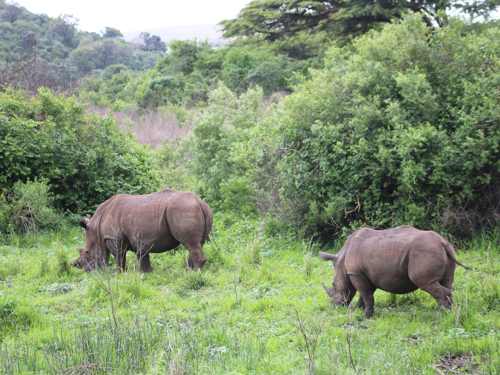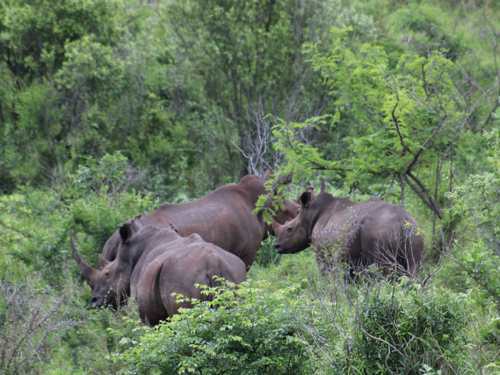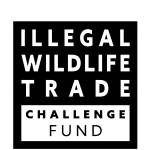Disrupting networks trafficking rhino horn

South African ten Rand notes. Credit - Save The Rhino International.
Project Blood Orange: Protecting rhinos using financial forensics
With support from the UK Government through the Illegal Wildlife Trade Challenge Fund, Save the Rhino International, the South African government, and the private sector worked together to successfully apply an innovative approach to wildlife crime: Financial forensics.
Codenamed ‘Project Blood Orange’, the investigation utilised a public-private partnership to target the organised criminal infrastructure behind rhino horn trafficking. By tracing illicit money flows, the investigation uncovered the structure and scale of a network operating across South Africa. This evidence-based approach targeted the echelons of a wildlife trafficking criminal syndicate. It was led by the South African Police Service’s Directorate for Priority Crime Investigations in collaboration with the National Prosecuting Agency, Asset Forfeiture Unit, Financial Intelligence Centre, South African Revenue Service, and the Environmental Enforcement Fusion Centre at the Department of Forestry, Fisheries and the Environment, together with KPMG South Africa.
Sixteen suspects were arrested in total, representing different positions within the South African network. In December 2022, the investigation uncovered the role of Francis Kipampa, an individual who pled guilty to involvement in rhino poaching incidents and was sentenced to 18 years in prison for conspiracy to traffic rhino horn and laundering more than 1 million South African Rand (£42,000) in criminal proceeds. His conviction represents the first time in South Africa that financial charges have been successfully prosecuted in relation to wildlife crime. It also underscores the links between wildlife trafficking, money laundering, and broader transnational crime threats, including the trade in illegal arms and narcotics.

In a statement on 6th March 2025, the Minister of Forestry, Fisheries and the Environment of the Republic of South Africa, Dr Dion George, stated that:
“Project Blood Orange sends out a strong message – not only are we focusing on arresting those involved in poaching our rhino and trafficking the horn, but we are disrupting the higher up levels in the value chain. This project is an excellent example of the [importance of taking an] integrated and multi-disciplinary approach to investigating organised crime linked to wildlife and ensuring that we target corruption, money laundering, and the financial crimes associated with these activities. More of these focused investigations are needed as we continue to implement the National Integrated Strategy to Combat Wildlife Trafficking.”
Fifteen further suspects are due to appear in court later this year, made possible through sustained collaboration, innovative investigations, and international support, including the UK Government.
Written by Jo Shaw. For more information on this Illegal Wildlife Trade Challenge Fund Main project IWT098, led by Save the Rhino International, please click here.



 Back
Back